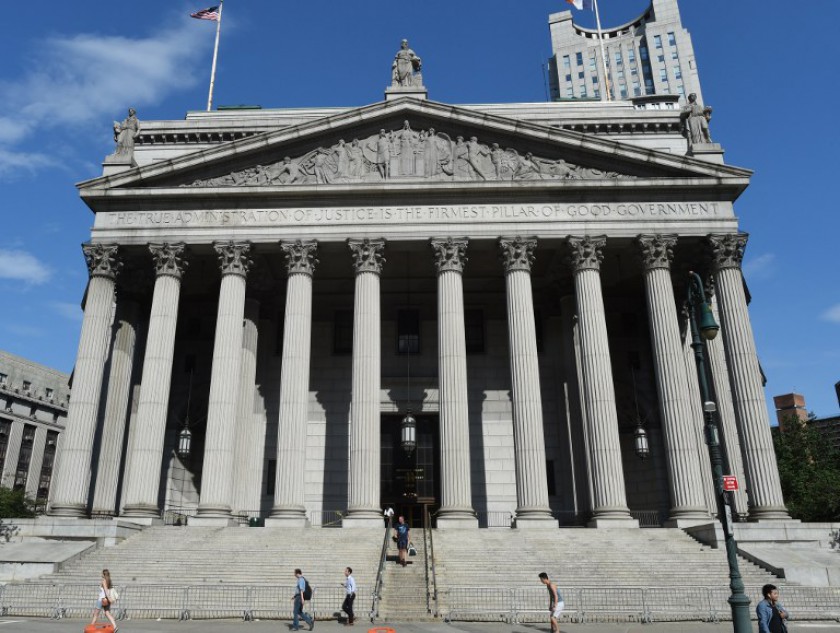WASHINGTON, Dec 1 — The US Supreme Court today began hearing arguments in a case on whether to gut abortion rights in America as it weighs Mississippi’s bid to overturn the landmark 1973 Roe v. Wade ruling that legalized the procedure nationwide.
The court, which has a 6-3 conservative majority, is hearing at least 70 minutes of oral arguments in the southern state’s appeal to revive its ban on abortion starting at 15 weeks of pregnancy. Lower courts blocked the Republican-backed law.
Jackson Women’s Health Organization, the only abortion clinic in Mississippi, challenged the law and has the support of Democratic President Joe Biden’s administration. A ruling is expected by the end of next June.
Roe v. Wade recognized that the right to personal privacy under the US Constitution protects a woman’s ability to terminate her pregnancy. The Supreme Court in a 1992 ruling called Planned Parenthood of Southeastern Pennsylvania v. Casey reaffirmed abortion rights and prohibited laws imposing an “undue burden” on abortion access.
Liberal Justice Stephen Breyer quoted from the Supreme Court’s Casey ruling, which stated that the court should not bow to political pressure in overturning Roe and that such a ruling would “subvert the court’s legitimacy.”
“The right of a woman to choose, the right to control her own body, has been clearly set since Casey and never challenged. You want us to reject that line of viability and adopt something different,” liberal Justice Sonia Sotomayor said.
Sotomayor said Mississippi brought its new challenge purely because of changes on the Supreme Court, which has become more conservative.
“Will this institution survive the stench this creates?” Sotomayor asked, saying that it would give the impression that the Constitution and its interpretation is based purely on politics. “If people think it is all political ... how will the court survive?”
Anti-abortion advocates believe they are closer than ever to overturning Roe, a longstanding goal for Christian conservatives.
Mississippi’s is one of a series of restrictive abortion laws passed in Republican-governed states in recent years. The Supreme Court on Nov. 1 heard arguments over a Texas law banning abortion at around six weeks of pregnancy but has not yet issued a ruling.
Hundreds of protesters from both sides of the abortion debate rallied outside the white marble neoclassical courthouse ahead of the arguments. Anti-abortion protesters held huge signs reading “abortion is murder,” some carrying Christian crosses. Abortion rights activists chanted “what do we want? Abortion access. When do we want it? Now.”
Fetal viability
The Roe and Casey decisions determined that states cannot ban abortion before a fetus is viable outside the womb, generally viewed by doctors as between 24 and 28 weeks.
Conservative Chief Justice John Roberts questioned whether viability was a central issue in the Roe or Casey rulings.
Mississippi’s 15-week ban directly challenged the viability finding. Even if the court does not explicitly overturn Roe, any ruling letting states ban abortion before fetal viability outside the womb would raise questions about how early states could prohibit the procedure. In the 1992 Casey ruling, the court said Roe’s “central holding” was that viability was the earliest point at which states could ban abortion.
While urging the court to overturn Roe, Mississippi Attorney General Lynn Fitch, a Republican, has said the justices could uphold its law by finding that a 15-week ban does not impose an undue burden. Such a ruling would wipe out the viability standard embraced in the Roe and Casey decisions, meaning the justices would have to consider where to draw the line.
Abortion rights advocates have said such a decision would eviscerate Roe, making it easier for conservative states to impose sweeping abortion restrictions.
Mississippi is among 12 states with so-called trigger laws designed to ban abortion if Roe v. Wade is overturned. Additional states also likely would move quickly to curtail abortion access.
If Roe were overturned or limited, large swathes of America could return to an era in which women who want to end a pregnancy face the choice of undergoing a potentially dangerous illegal abortion, traveling long distances to a state where the procedure remains legal and available or buying abortion pills online. The procedure would remain legal in liberal-leaning states, 15 of which have laws protecting abortion rights.
Abortion remains a contentious issue in the United States, as in many countries. In a June Reuters/Ipsos poll, 52 per cent of US adults said abortion should be legal in all or most cases, while 36per cent said it should be illegal in most or all cases. — Reuters






















